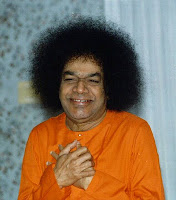This posting is about the need to maintain a code of conduct in speaking. Most importantly, Bhagawan highlights the need to speak the Truth. There are five Discourse excerpts presented in this posting. These have been selected from the Discourses given by Bhagawan Baba in the years 1995 and 1996.
1A. Slip of leg can be retraced but not slip of tongue-1.41-1996 July 12
 |
| Truth is the Life of our Word |
Students! The value that the ‘Word’ has, even a note (currency note) does not have. There are two types of notes. One is a currency note and the other is a promissory note. If these notes do not possess the characteristics that they ought to, they would be of no use. Truth is the life for the Word, the army is the life for a fort. The life for a note is the signature on it. If we forget this essence of the spoken Word, it would amount to forgetting humanity itself.
 |
| Always Speak the Truth |
Satyam Bruyaat – Speak the Truth. This is the Moral value. Priyam Bruyaat – speak in a pleasing way. This is the Dharmic value (Ethical value). Na Bruyaat Satyam Apriyam – never speak the truth in an unpalatable way. This is the Spiritual value. Therefore, for the moral, ethical and spiritual value, Truth is of prime importance. From the moral standpoint, we must always speak the Truth. How should this truth be spoken? It should be spoken in a pleasing manner. Once we adhere to speaking the truth in a pleasing way, we would never utter a lie. Once we understand this Truth, we would be able to understand everything in life.
Personal Reflections
Most of what Bhagawan says here is straight forward. However, one aspect may seem apparently contradictory. In audio clip 3A, Bhagawan says that we must speak the truth as it is without being influenced by the likes and dislikes of the audience. However, in audio clip 3b and 4, Bhagawan states that we must never speak the truth that is bitter. So, should one speak the truth as it is or avoid speaking truth that is bitter? As I understand what Bhagawan means is that when the truth would not cause pain or trauma to anyone, it must be spoken as it is, without any distortion. However, when the truth is likely to cause pain to somebody, it is better to avoid speaking the same.
For example, if we hear one of our associates, say Mr. X criticizing Mr. Y and speaking very badly about him, we need not take pleasure in sharing this truth with Mr. Y and causing pain to him, unless there is a specific need to do so. Another example could be when we hear about the death of say, the mother of one of our close friends, how would we break the news to him? Would we go to him straight and yell out the truth that his mother is no more? Or would we break the news in a delicate manner?
After reading and hearing the clips, try answering these questions:


